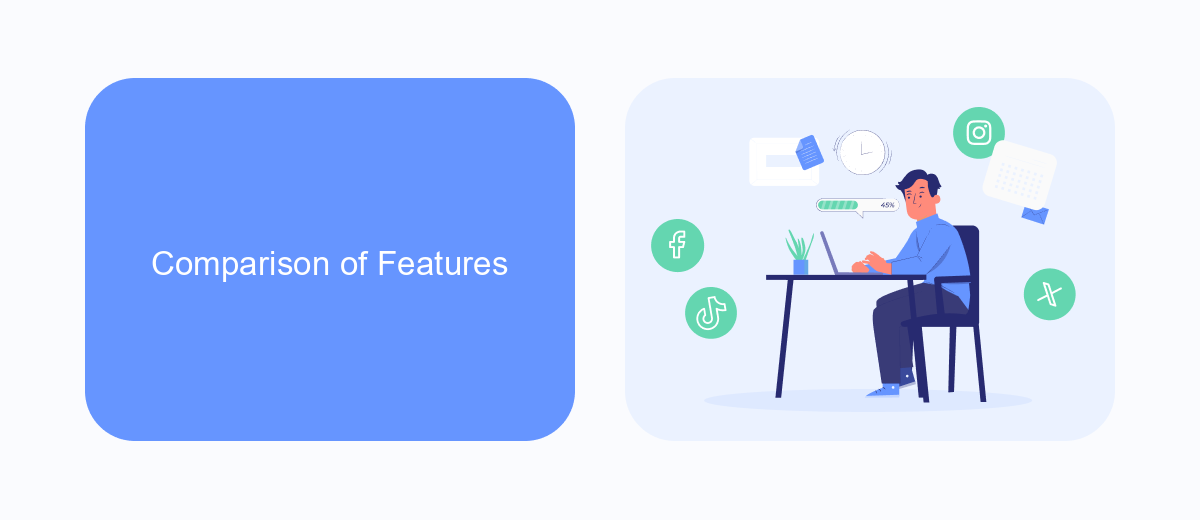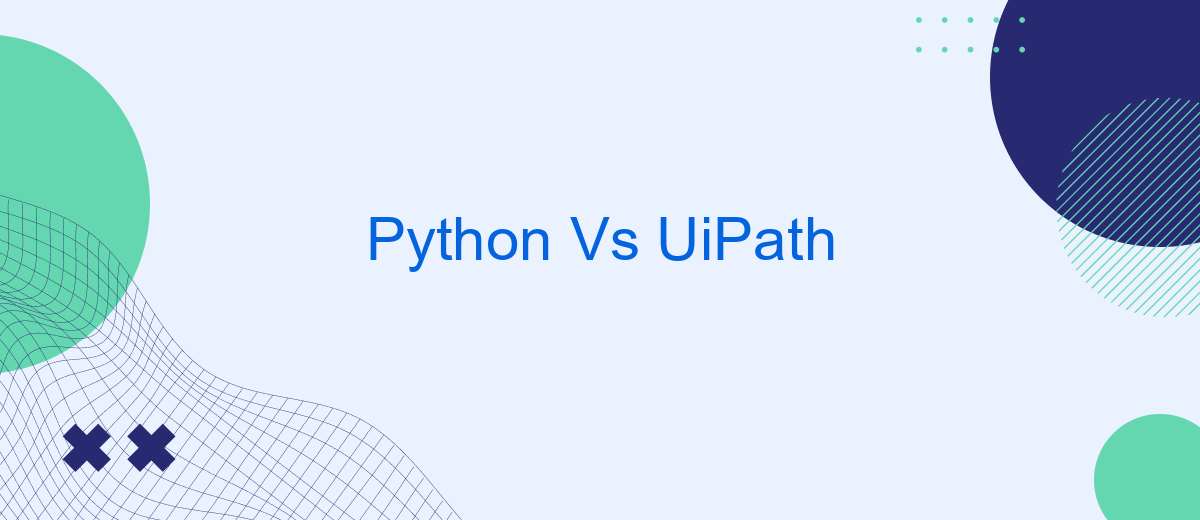In today's rapidly evolving tech landscape, automation has become a cornerstone for efficiency and innovation. Python and UiPath are two leading tools in this domain, each offering unique strengths and capabilities. This article delves into a comparative analysis of Python and UiPath, exploring their features, use cases, and determining which might be the best fit for your automation needs.
Introduction
In today's rapidly evolving technological landscape, automation has become a crucial component for businesses aiming to enhance efficiency and productivity. Python and UiPath are two prominent tools in the realm of automation, each offering unique advantages and use cases. Understanding the differences between these two can help organizations make informed decisions based on their specific needs.
- Python: A versatile, high-level programming language known for its simplicity and readability. It is widely used in data analysis, machine learning, and web development.
- UiPath: A leading Robotic Process Automation (RPA) platform that enables businesses to automate repetitive tasks through a visual, drag-and-drop interface, without extensive coding knowledge.
Both Python and UiPath have their own strengths and can be integrated with various services to streamline workflows. For instance, SaveMyLeads is a service that can help automate lead management by integrating with different platforms, ensuring that businesses can efficiently handle their customer data. By leveraging the right tool and integrations, companies can achieve significant improvements in their operational processes.
Comparison of Features

When comparing Python and UiPath, one of the major differences lies in their core functionalities. Python is a versatile programming language that offers extensive libraries and frameworks for various applications, from web development to data analysis and machine learning. Its open-source nature and active community support make it highly adaptable for custom solutions. On the other hand, UiPath is a specialized tool designed for Robotic Process Automation (RPA), enabling users to automate repetitive tasks through a visual interface without needing extensive programming knowledge. This makes UiPath particularly effective for business process automation and operational efficiency.
Another key feature to consider is integration capabilities. Python, with its vast array of libraries and APIs, can integrate with almost any system or service, providing flexibility in creating complex workflows. UiPath also offers robust integration options, especially with enterprise applications and services. For instance, using platforms like SaveMyLeads, UiPath can seamlessly connect with various CRM systems, marketing tools, and other business applications, simplifying the automation of data flows and enhancing productivity. Both Python and UiPath provide powerful solutions, but the choice between them depends on the specific needs and technical expertise of the user.
Core Strengths and Weaknesses

When comparing Python and UiPath, it's essential to understand their core strengths and weaknesses to determine which tool best suits your needs. Both have unique advantages that cater to different aspects of automation and development.
- Python:
- Strengths: Highly versatile and powerful programming language, extensive libraries and frameworks, strong community support, and excellent for data manipulation, machine learning, and web development.
- Weaknesses: Requires programming knowledge, steeper learning curve for beginners, and may need additional tools for full-fledged automation.
- UiPath:
- Strengths: User-friendly interface, designed specifically for robotic process automation (RPA), drag-and-drop functionality, and strong integration capabilities with services like SaveMyLeads for seamless workflow automation.
- Weaknesses: Limited flexibility compared to programming languages, can be less efficient for complex tasks, and potentially higher costs for enterprise solutions.
Ultimately, the choice between Python and UiPath depends on your specific requirements and technical expertise. Python offers unparalleled flexibility and power for developers, while UiPath provides a more accessible and specialized solution for automating business processes.
Use Cases and Industry Applications

Python and UiPath are powerful tools used in various industries for automation and development purposes. Python, being a versatile programming language, is widely adopted in fields such as data science, web development, and artificial intelligence. Its extensive libraries and frameworks make it a go-to choice for developers looking to build robust applications and perform complex data analyses.
UiPath, on the other hand, is a leading Robotic Process Automation (RPA) platform that excels in automating repetitive tasks across different business processes. It is particularly beneficial in sectors like finance, healthcare, and customer service, where it can streamline workflows and enhance productivity by automating mundane tasks.
- Python: Data analysis, web scraping, machine learning, web development
- UiPath: Invoice processing, customer support automation, data entry, HR onboarding
Both Python and UiPath can be integrated with various services to enhance their capabilities. For instance, SaveMyLeads is a service that helps automate lead generation and management by integrating different platforms seamlessly. This can be particularly useful when combined with Python scripts or UiPath workflows to ensure a smooth and efficient data flow across systems.
Conclusion
In conclusion, both Python and UiPath offer unique advantages depending on the specific needs of a project. Python excels in flexibility and a wide range of applications, making it a powerful tool for developers who require custom solutions and intricate integrations. On the other hand, UiPath stands out for its user-friendly interface and robust capabilities in automating repetitive tasks without the need for extensive coding knowledge, making it ideal for business users and rapid deployment scenarios.
When it comes to integrating various services and automating workflows, tools like SaveMyLeads can be invaluable. SaveMyLeads simplifies the process of connecting different platforms and automating data transfers, thereby enhancing both Python and UiPath projects. By leveraging such integration services, businesses can achieve greater efficiency and streamline their operations, ensuring they get the best out of both Python's versatility and UiPath's automation prowess.
FAQ
What are the main differences between Python and UiPath?
Which is better for automating repetitive tasks, Python or UiPath?
Can Python and UiPath be used together?
What are the costs associated with using Python and UiPath?
How can I integrate Python or UiPath with other services for automation?
SaveMyLeads is a simple and effective service that will help you automate routine tasks and optimize business processes. Stop wasting time uploading leads from Facebook manually – you can do it automatically, saving a lot of time and money. Eliminate routine from workflows and achieve more with minimal investment of money, effort and human resources.
